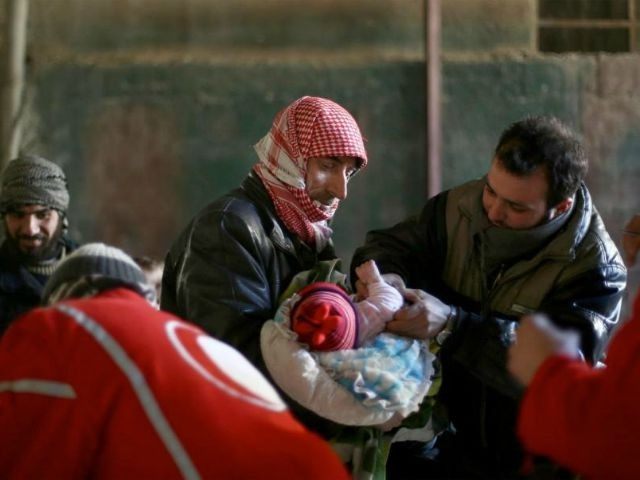The International Committee of the Red Cross is warning that denial of water supplies as a weapon of war could trigger an “epidemic” of any number of diseases in Syria, where the Islamic State (ISIS/ISIL/IS) continues to battle for territory against Syrian President Bashar al-Assad’s troops and an array of rebel fighters.
“Over the next two years we will begin to see in cities like Aleppo potentially the rise of these big health epidemics that we haven’t seen in this context until now – typhoid, cholera and so on,” warned Patrick Hamilton, ICRC operations coordinator for the Near and Middle East, when speaking with Reuters this week. The average Syrian in a number of major cities struggles for access to water, and much of that water carries questionable health risks, as much of the infrastructure in the country has been ravaged since the civil war began in 2011.
Hamilton used Aleppo as an example, a city ravaged by a combination of airstrikes, ground fighting, and the use of strategic warfare targeting infrastructure. The Red Cross has focused much of its attention on that city due to its size and its desperate lack of access to daily necessities. In particular, Hamilton says, they are trying to provide boreholes where residents can find clean water. “We’ve been trying to alert the population through social media to the presence of these boreholes. We put out a map on Facebook and Twitter telling people in this place they can find clean water,” he says. Without such work, he warns, “you’ll end up getting huge epidemics which end up wiping out large segments of population.”
The Red Cross warnings follow reports from the United Nations that its refugee camp in Yarmouk, Syria, has identified 23 cases of typhoid, four times higher than the amount documented upon discovering the first case on August 18.
Warnings of disease ravaging the war-torn population of Syria are not new, however, as the Islamic State has been targeting infrastructure in the country for more than a year, resulting in difficulty in acquiring water, which leads to both nutritional and hygienic risks. As early as June 2014, reports surfaced of the Islamic State using dams across Syria and Iraq as weapons, bombing them to “flood” enemy towns, thus wasting millions of gallons of water no longer accessible to civilians. Conversely, the Islamic State has also blocked dams to “dry up” populations that no longer have access to water. ISIS has also diverted water supplies, when possible, from areas it does not control towards places like Raqqa, its self-proclaimed “capital,” to keep the city running at the expense of towns still in Assad’s control.
It did not take long for new and threatening diseases to surface in this atmosphere. In the same year, aid workers began to report cases of polio among Syrian refugees. Polio had been eradicated from the country officially in 1999, thanks to widespread vaccinations, but it made a return in three years of war as infants grew up without access to vaccines or any medical care. Many lived in close quarters, with little access to water, spreading the disease.
The Islamic State has been expanding its influence in Syria as of late. This week, reports from watchdog group the Syrian Observatory for Human Rights claimed that ISIS terrorists had begun fighting within the borders of Damascus, the capital of Syria and Assad’s last major stronghold. The report is the closest ISIS has allegedly gotten to the Syrian head of state; the capture of Damascus would be devastating for the war on the Islamic State and would put millions of lives–as well as a city full of ancient history–at risk.

COMMENTS
Please let us know if you're having issues with commenting.